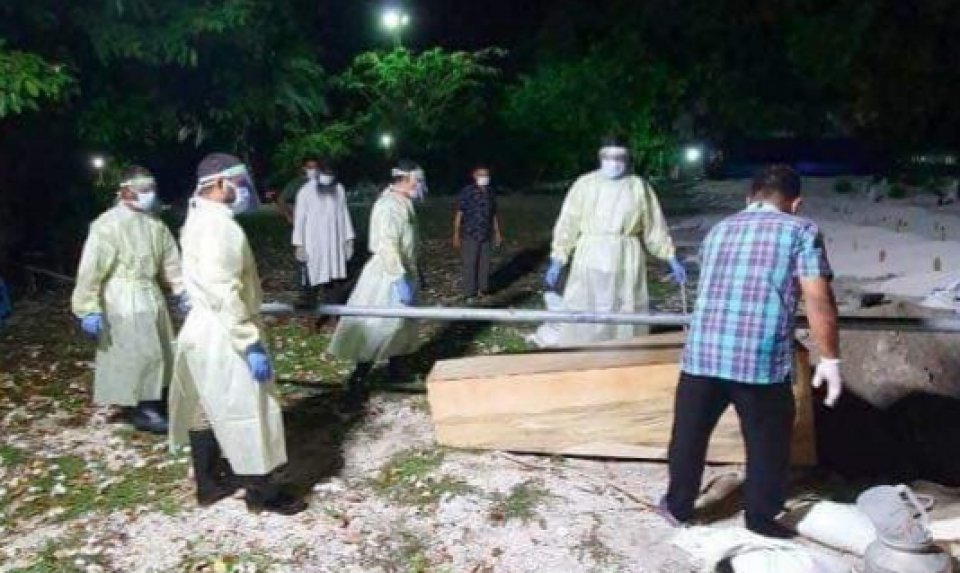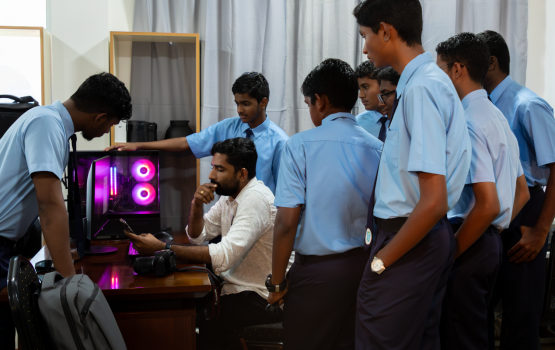It's an ominous sign when the health Minister and two leading doctors from the Technical Advisory Group TAG appear on your TV screens at 1:30 am.
It proved such when Health Minister Abdullah Ameen announced that an 83-year-old woman had passed away Wednesday evening and that she had tested positive for Covid-19 postmortem. Thus becoming the first Covid-19 related death in the country.
The Minister went on to explain that the deceased had been a contact of a positive individual, case 126, and had been living in a residential building currently under the monitoring of Health Protection Agency HPA. Case 126 was tested positive for Covid-19 on the 23rd of April.
What’s baffling is the delay in testing the deceased for Covid-19 and the apparent lack of reasoning to explain this delay by the authorities.
NEOC spokesperson Mohamed Mabrook Azeez confirmed last night that it had come to the attention of the authorities that the deceased was a primary contact of case 126 and that her sample should be taken for testing. Mabrook also confirmed that the sample was taken in the early hours of 28th April around 3:00 am and that the person was rushed to IGMH after complaining of breathing difficulties on the evening of 29th April and was declared dead upon arrival at the hospital.
The chronology of events relating to this case only paints half of the picture. Reality is that the deceased had several underlying health issues including diabetics, hypertension, and had been treated for pneumonia thrice this past year.
So why the delay in testing her for Covid-19? Was she not deemed high risk enough?
Authorities have been saying that when testing, priority would be given to direct or primary contacts who show symptoms of Covid-19 or to high-risk contacts, mostly elderly persons with underlying health issues.
We are talking about an-83-year-old woman who had been a direct contact of a confirmed Covid-19 case, an 83-year-old woman who had been taking medications for at least three long-term illnesses, an 83-year-old woman who had received treatment for pneumonia not once but thrice in the last year alone.
There can hardly be a more high-risk contact than her.
Her family has alleged that HPA’s negligence was the key reason behind her demise. The family had said that they had been updating HPA on the patient’s condition from the beginning and that HPA had not attended to their concerns promptly.
Another issue that has popped up with this case is how can a primary contact still living in a house under HPA’s monitoring be allowed to deteriorate so rapidly with no assistance from the authorities?
This poses the question as to what exactly is meant by ‘placed under monitoring’. Is it just to be cordoned off barring all entry or exit into the building or it just a name on a list that HPA updates daily and tweets?
True, HPA officials have taken several important pre-emptive measures in the fight against Covid-19 that proved effective and had prevented the spread of the virus till now.
But does the first recorded death of a Covid-19 patient in Maldives reveal a chink in the armor? Does the HPA need to prioritize their testing to identify vulnerable individuals to avoid such a tragedy in the future?
With the recent surge in numbers of positive cases, the death of a Covid-19 patient was inevitable but was this, a result of a gross negligence on the part of the authorities?
Health Minister Ameen ordered a full investigation into the incident and one can only hope that the need for more investigations does not arise.











